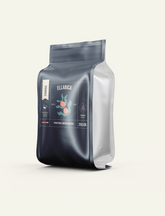Your Ultimate Guide to Balanced Nutrition and Exercise
Start your day with a balanced breakfast rich in protein and healthy fats. Take short breaks to stretch and move around if you have a desk job. Hydrate consistently by drinking water throughout the day to maintain energy levels.
The Importance of a Balanced Diet
A well-rounded diet is essential for maintaining overall health, boosting energy levels, and supporting physical activity. Here are key components of a balanced diet:
-
Protein: Supports muscle growth and repair. Sources include lean meats, fish, eggs, beans, and nuts.
-
Healthy Fats: Essential for brain function and energy. Found in avocados, nuts, seeds, and olive oil.
-
Carbohydrates: Provide energy for daily activities. Choose whole grains, fruits, and vegetables.
-
Vitamins & Minerals: Crucial for immune function and overall well-being. Incorporate a variety of colorful vegetables and fruits into your meals.
-
Hydration: Water is key for digestion, circulation, and overall bodily functions. Aim for at least 8 glasses per day.
Structuring Your Daily Meals
To maintain a balanced diet, consider the following meal structure:
-
Breakfast: High-protein foods with healthy fats (e.g., eggs with avocado and whole-grain toast).
-
Lunch: Lean protein, fiber-rich vegetables, and whole grains (e.g., grilled chicken with quinoa and a side of greens).
-
Dinner: Light yet nutritious, with a focus on protein and vegetables (e.g., salmon with roasted sweet potatoes and asparagus).
-
Snacks: Healthy options like nuts, Greek yogurt, or fruit to keep energy levels steady.
The Role of Exercise in a Healthy Lifestyle
Pairing good nutrition with regular exercise helps maintain a strong and active body. Here are essential exercise components:
-
Cardio: Activities like running, swimming, and cycling improve heart health and endurance.
-
Strength Training: Lifting weights or bodyweight exercises (e.g., squats, push-ups) build muscle and bone density.
-
Flexibility & Mobility: Yoga or stretching enhances movement and reduces injury risk.
-
Consistency: Aim for at least 150 minutes of moderate exercise per week for optimal health benefits.
Tips for Staying on Track
-
Plan Your Meals: Prepare meals in advance to avoid unhealthy choices.
-
Stay Hydrated: Carry a water bottle to ensure you drink enough throughout the day.
-
Set Realistic Goals: Focus on progress rather than perfection in your fitness journey.
-
Listen to Your Body: Rest when needed and nourish your body with wholesome foods.
-
Stay Active Throughout the Day: Take breaks to walk, stretch, or stand, especially if you have a sedentary job.
Conclusion
A balanced approach to nutrition and exercise leads to long-term health and well-being. By fueling your body with the right foods and maintaining an active lifestyle, you can optimize your energy levels, boost overall fitness, and enhance your quality of life. Start small, stay consistent, and enjoy the journey to a healthier you!





